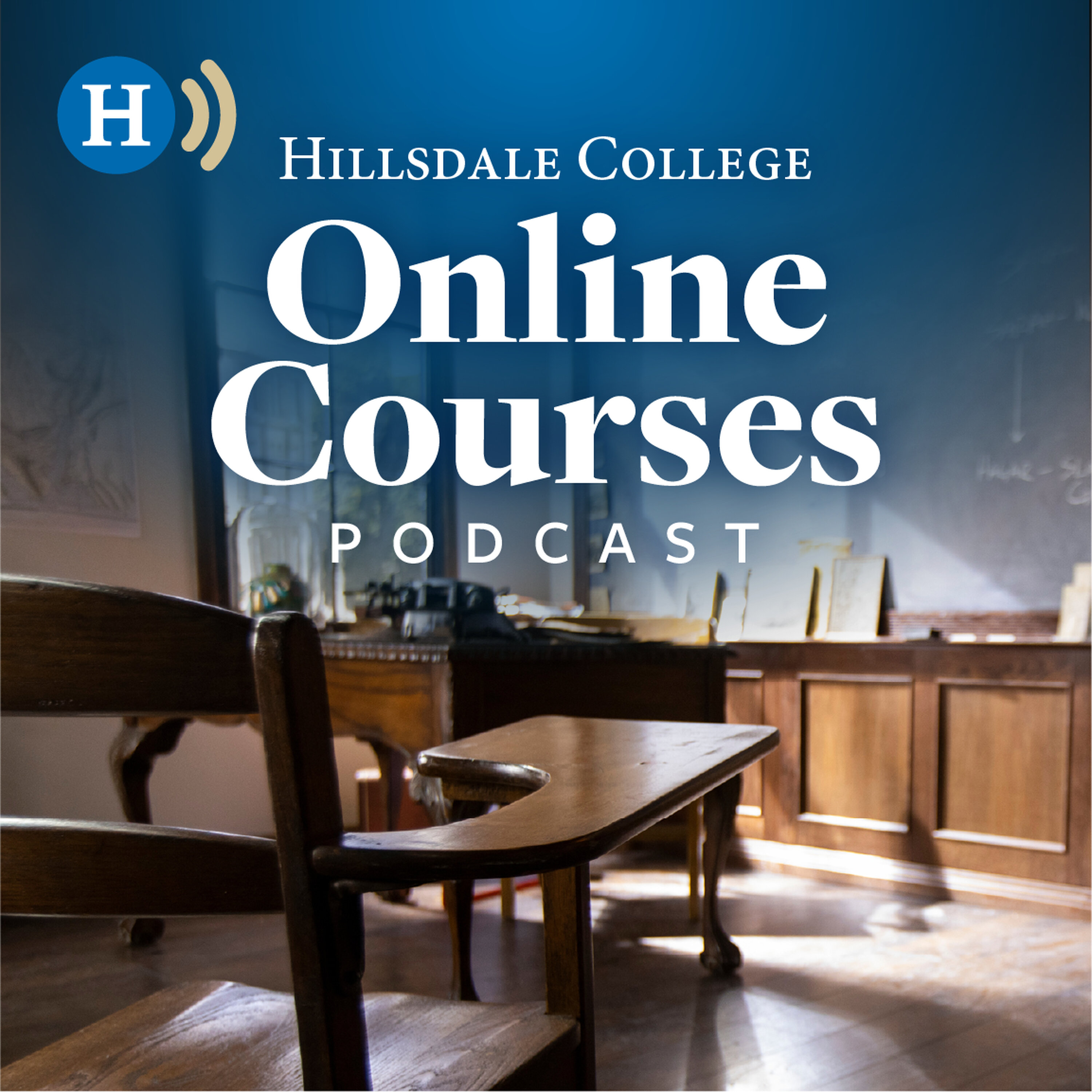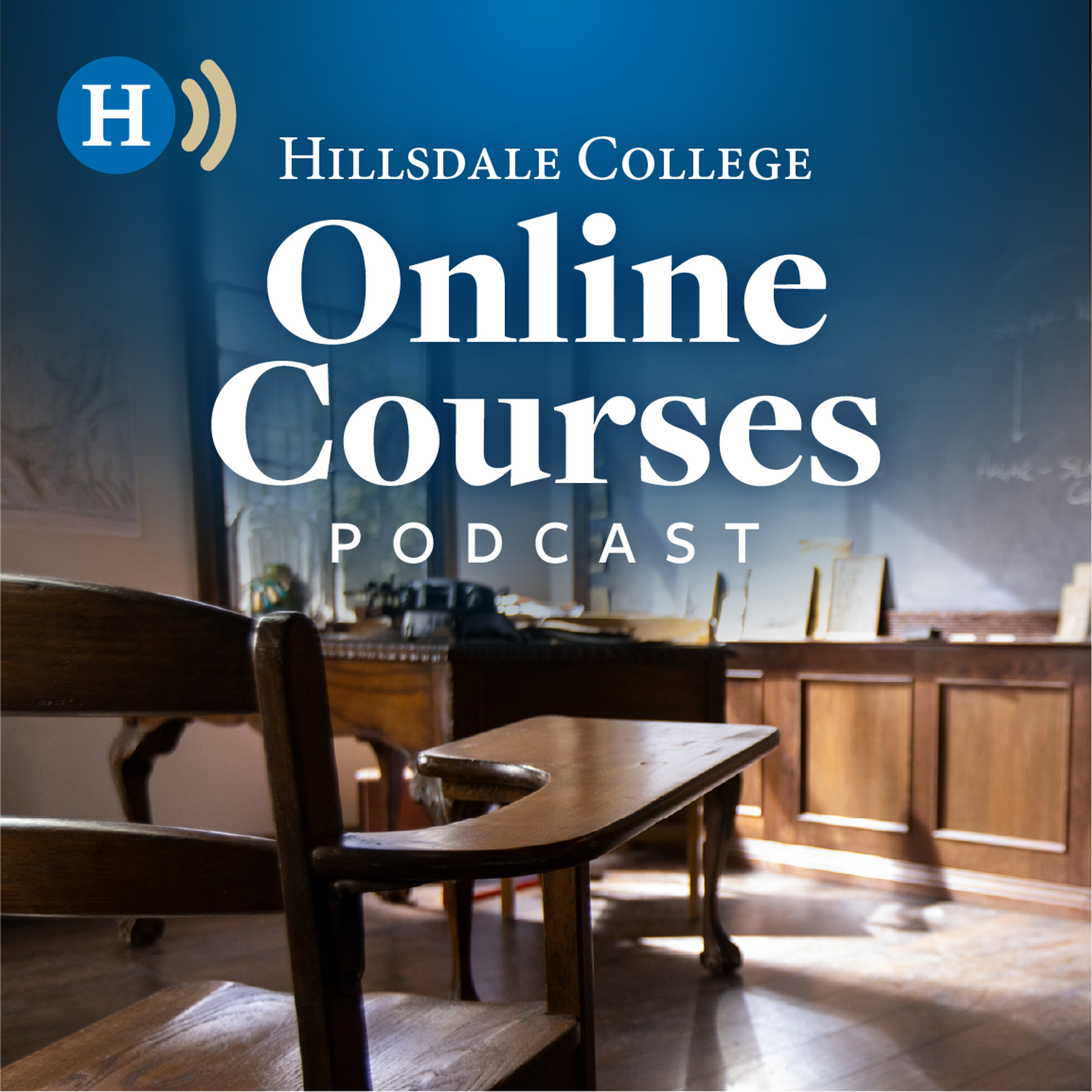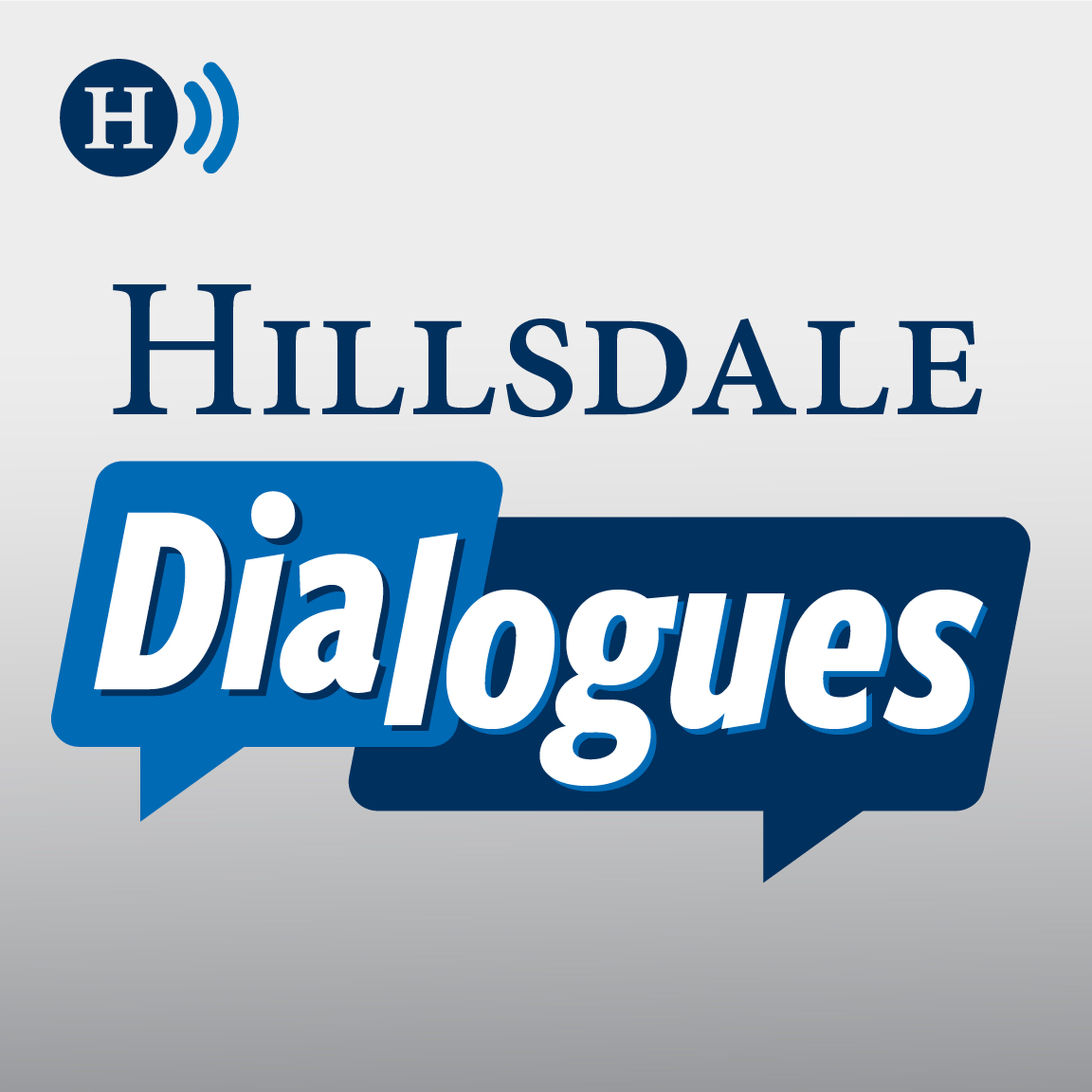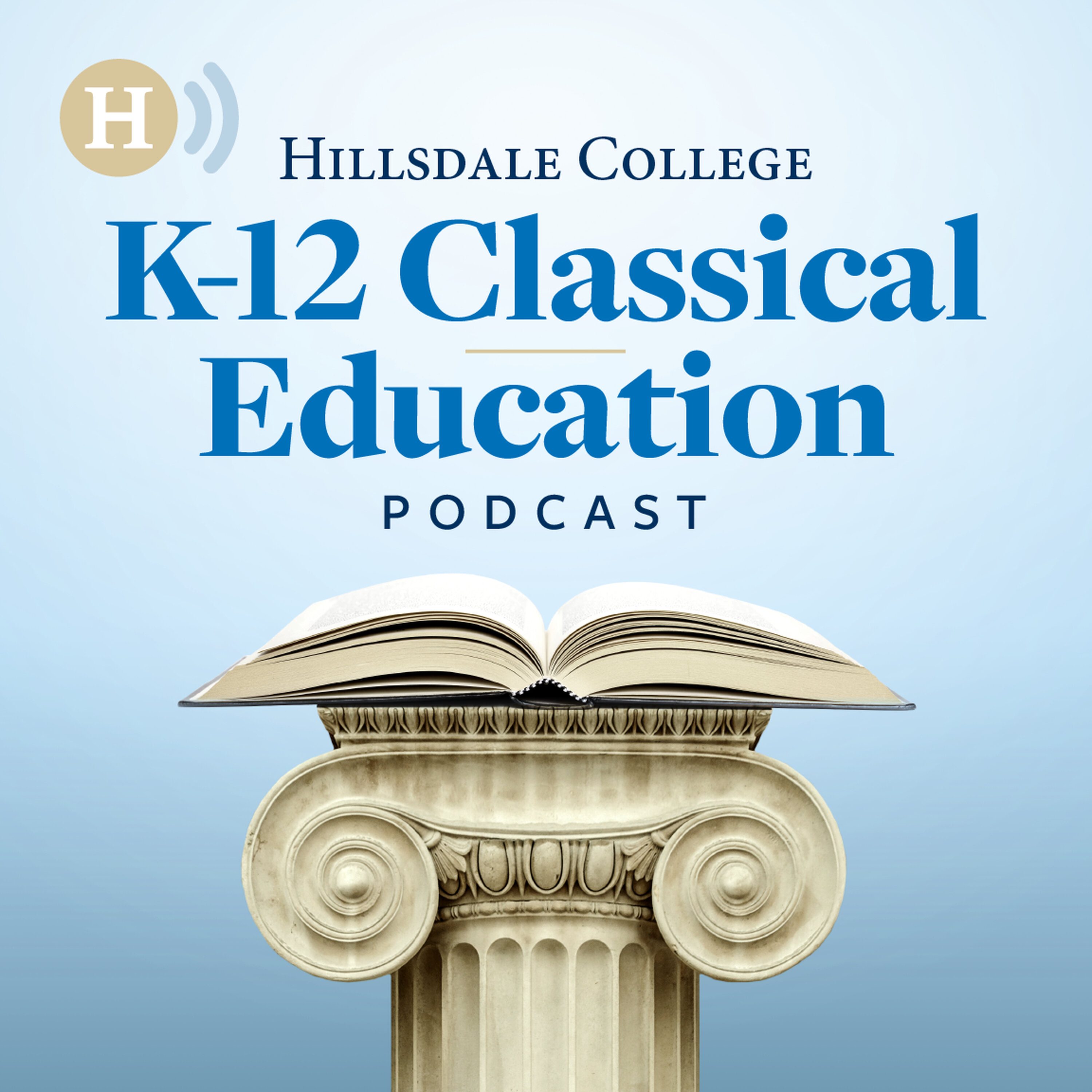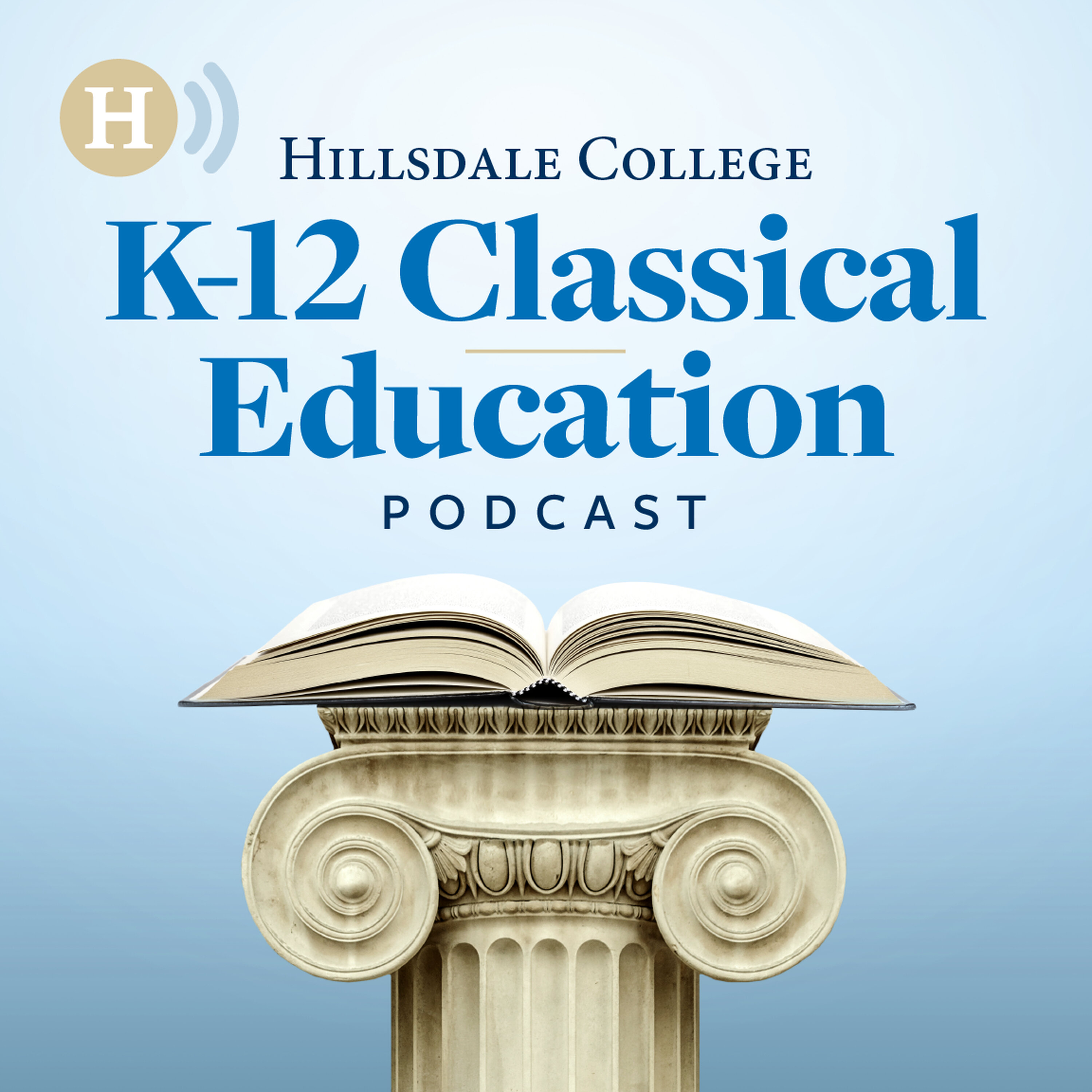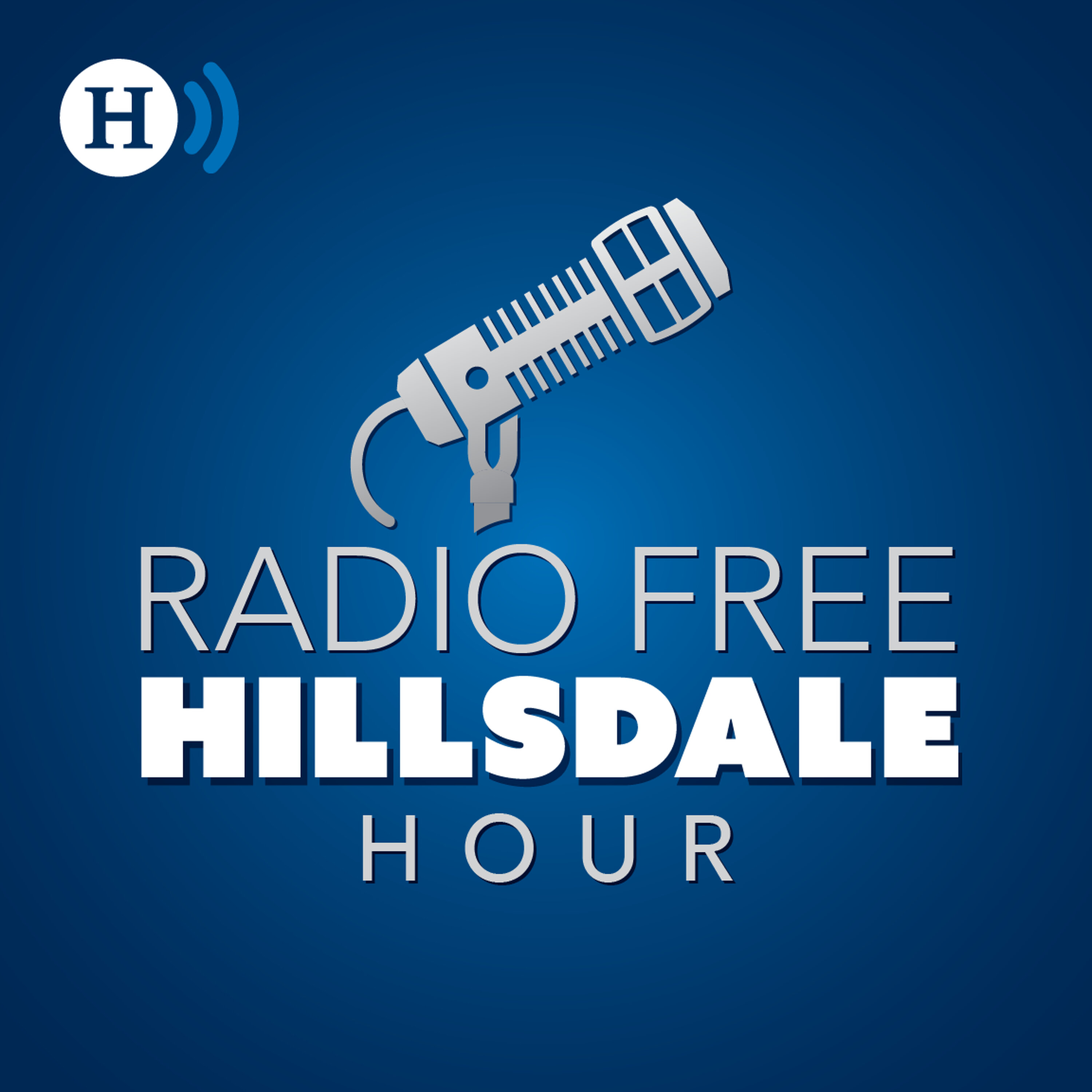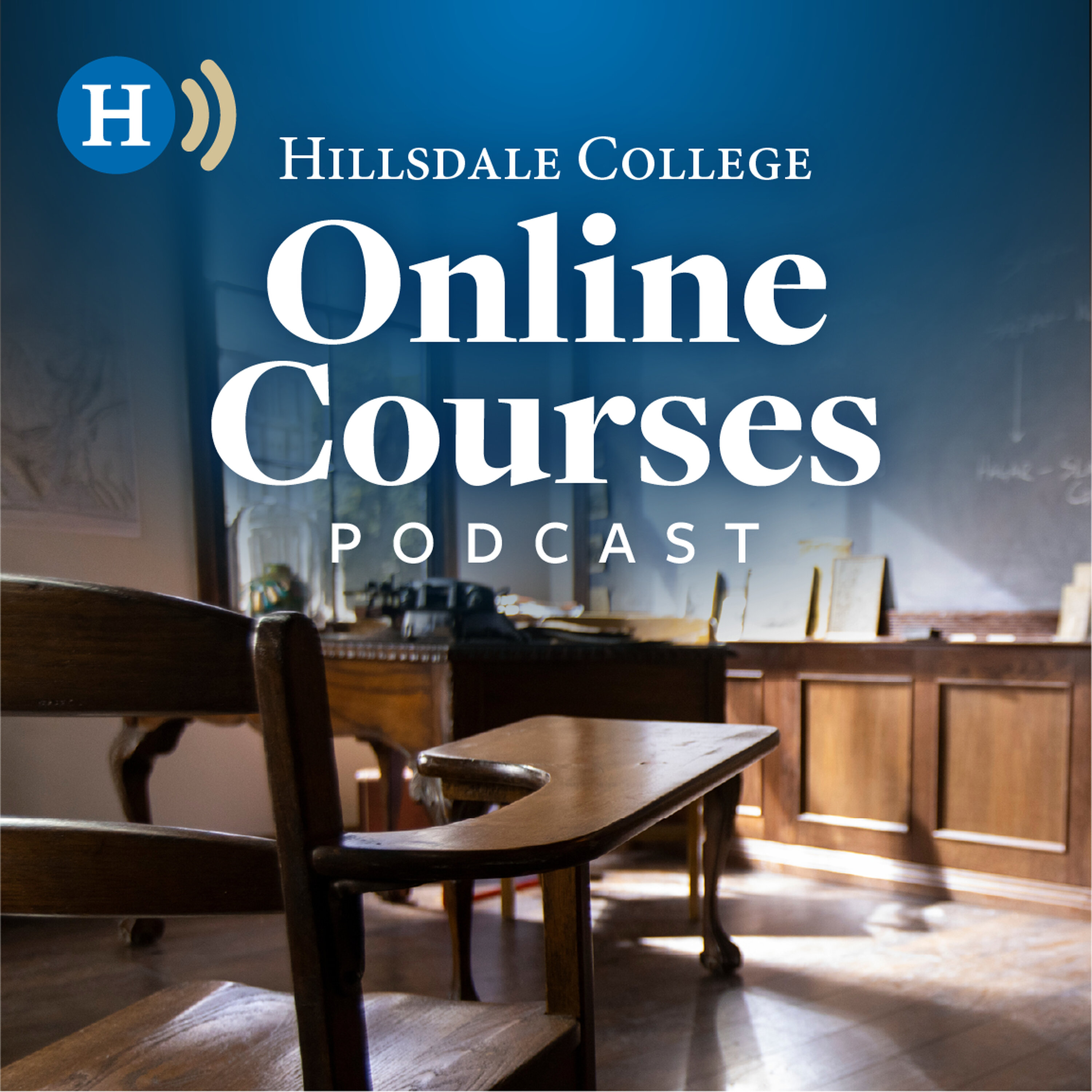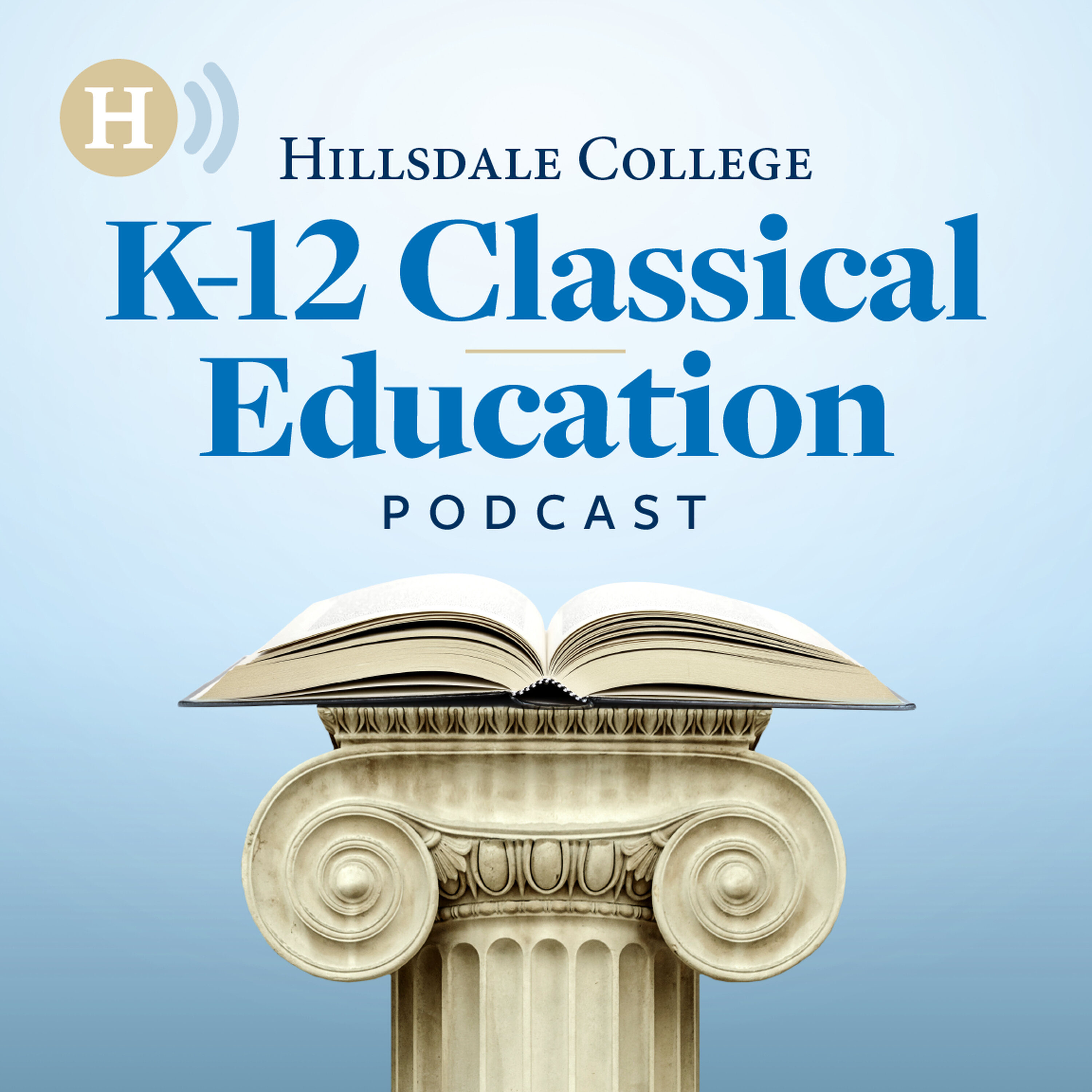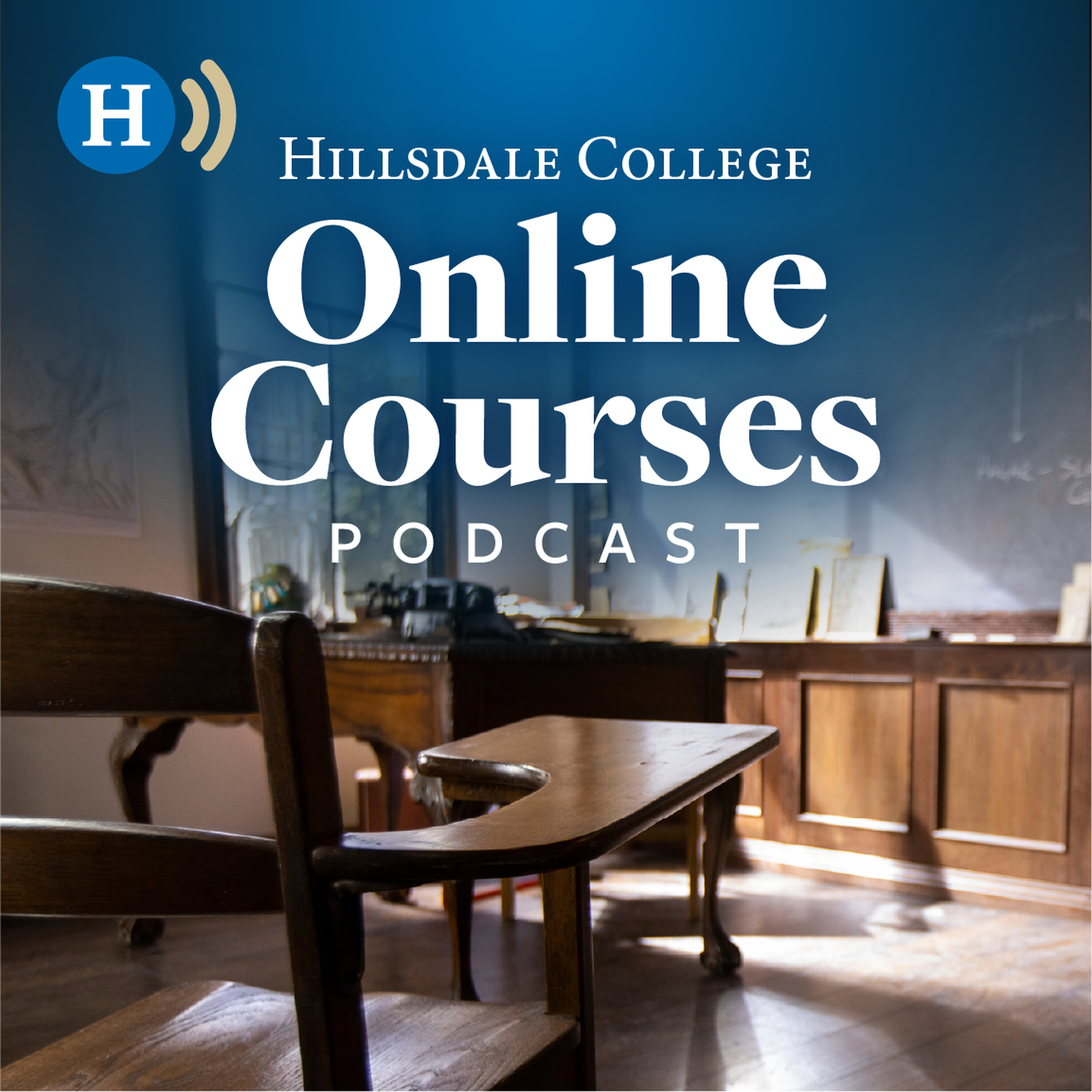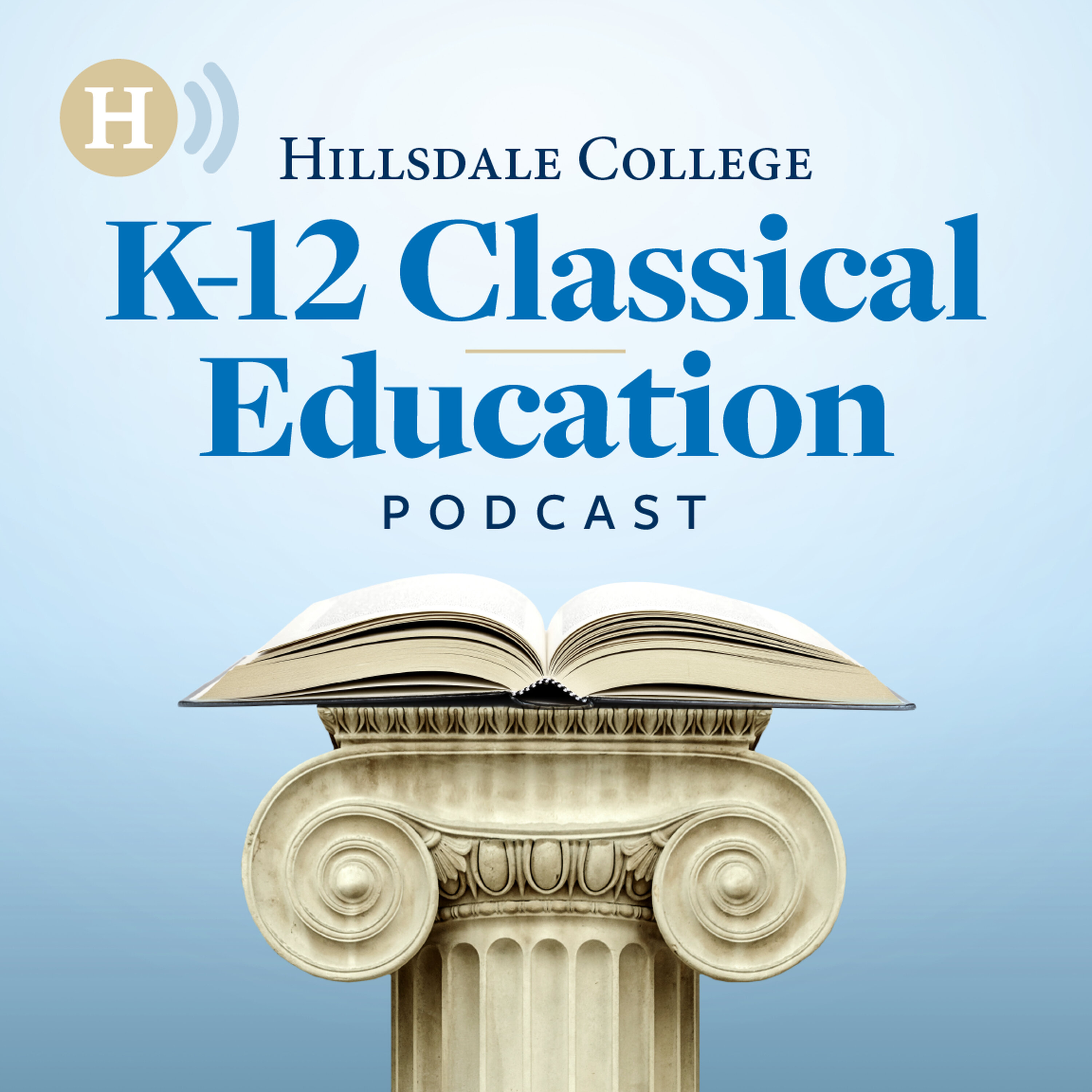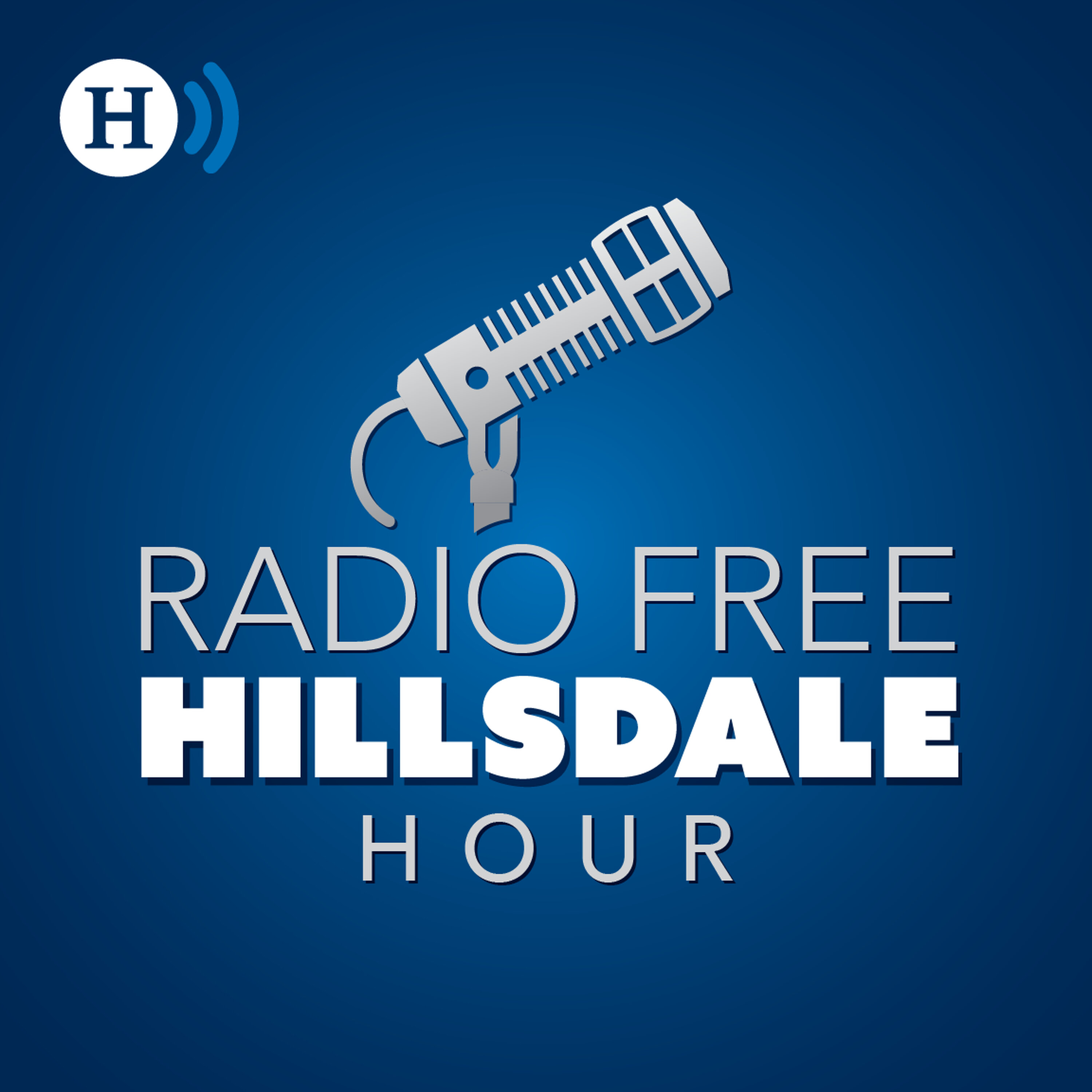Discover Hillsdale College Podcast Network Superfeed
Hillsdale College Podcast Network Superfeed

1665 Episodes
Reverse
On this episode of The Hillsdale College Online Courses Podcast, Jeremiah and Juan discuss the film Shadowlands before introducing Michael Ward. C.S. Lewis’s writings bring the great questions of the Christian faith to life. Through his imaginative and invigorating style, Lewis answers these questions in ways that are compelling to those outside Christianity and energizing to those within the Christian faith. The Problem of Pain and A Grief Observed offer two very different approaches to suffering. In the former, Lewis addresses the intellectual problem raised by the existence of pain in a world created by a good and all-powerful God; and, in the latter, he presents a deeply personal account of his own suffering.See omnystudio.com/listener for privacy information.
On this episode of The Hillsdale College Online Courses Podcast, Jeremiah and Juan discuss C.S. Lewis' understanding of prayer before introducing Michael Ward. C.S. Lewis’s writings bring the great questions of the Christian faith to life. Through his imaginative and invigorating style, Lewis answers these questions in ways that are compelling to those outside Christianity and energizing to those within the Christian faith. C.S. Lewis’s distinction between contemplation and enjoyment extended to his practice of the Christian faith through prayer and reading the Bible. Lewis viewed prayer as a challenge—a task to be completed—until he recognized prayer as our participation in the cycle of God talking to and for creation. Moreover, Lewis recognized that the Bible is best understood and enjoyed by focusing on Christ as the interpretive key that unites the written Word.See omnystudio.com/listener for privacy information.
Supreme Court arguments concerning the existence of independent government agencies, Christmas at Hillsdale College, the consequences of unrestricted immigration in Europe, and the rise of radical candidates in the Democratic party. Dr. Larry P. Arnn, president of Hillsdale College, joins Hugh Hewitt on the Hillsdale Dialogues. Release date: 12 December 2025See omnystudio.com/listener for privacy information.
Ben Payne, director of leader support for Hillsdale College's K-12 Education Office, joins host Scot Bertram to discuss helping students build emotional durability, focusing on developing virtue over value, and the essential principles when helping students to reframe their attitudes. Learn more: https://k12.hillsdale.edu/See omnystudio.com/listener for privacy information.
Guests: Kenneth Calvert & Chloe Carmichael Host Scot Bertram talks with Kenneth Calvert, professor of ancient history at Hillsdale College, about the historical origins of Christmas. And Chloe Carmichael, clinical psychologist and USA Today best-selling author, discusses how free speech makes people healthier and happier and her new book Can I Say That? Why Free Speech Matters and How to Use It Fearlessly.See omnystudio.com/listener for privacy information.
In this special episode of the Hillsdale Dialogues, Dr. Matthew Spalding, Vice President of Washington Operations and Dean of the Van Andel Graduate School of Government at Hillsdale College, joins Hugh Hewitt on the Hillsdale Dialogues to discuss his new book The Making of the American Mind: The Story of our Declaration of Independence. Release date: 10 December 2025See omnystudio.com/listener for privacy information.
On this episode of The Hillsdale College Online Courses Podcast, Jeremiah and Juan discuss the multifaceted nature of C.S. Lewis' worldview before introducing Michael Ward. C.S. Lewis’s writings bring the great questions of the Christian faith to life. Through his imaginative and invigorating style, Lewis answers these questions in ways that are compelling to those outside Christianity and energizing to those within the Christian faith. C.S. Lewis’s account of his conversion in Surprised by Joy makes a crucial distinction between contemplation and enjoyment. While Lewis understood the place for theoretical knowledge in the Christian life, he believed it was secondary to the enjoyment of participating fully in the experience of the faith.See omnystudio.com/listener for privacy information.
Dr. Larry P. Arnn, President of Hillsdale College, joins Hugh Hewitt on the Hillsdale Dialogues to continue a series on The Second World War, Churchill's sprawling memoir and history of World War II in six volumes.Release date: 05 December 2025See omnystudio.com/listener for privacy information.
Kathleen O’Toole, associate vice president for K-12 Education at Hillsdale College, is joined by Christopher Nadon to discuss a recent essay he wrote on how educators are failing their students by embracing the importance of “lived experience.” Christopher Nadon (B.A., M.A., Ph.D., University of Chicago) has taught political philosophy and humanities at Emet Classical Academy, Claremont McKenna College, Trinity College, and Kyev-Mohyla Academy. He writes on the character and history of republican government understood as self-rule in authors such as Herodotus, Xenophon, Aristotle, Machiavelli, Sarpi, Hobbes, Locke, Tocqueville, and Lincoln. Learn more: https://k12.hillsdale.edu/See omnystudio.com/listener for privacy information.
Guests: Mathew Spalding Host Scot Bertram talks with Matthew Spalding, vice president of Washington Operations and dean of the Van Andel Graduate School of Government at Hillsdale College in Washington, D.C, about his new book, The Making of the American Mind: The Story of our Declaration of Independence, and the intellectual tradition that inspired the writing of the Declaration of Independence.See omnystudio.com/listener for privacy information.
November 2025 | Volume 54, Issue 11Today’s Firestorm and the DeclarationLarry P. ArnnPresident, Hillsdale CollegeThe following is adapted from remarks delivered on November 18, 2025, at a Hillsdale College reception in Franklin, Tennessee.See omnystudio.com/listener for privacy information.
On this episode of The Hillsdale College Online Courses Podcast, Jeremiah and Juan discuss how we often reach our lowest point before understanding our need for God before introducing Michael Ward. C.S. Lewis’s writings bring the great questions of the Christian faith to life. Through his imaginative and invigorating style, Lewis answers these questions in ways that are compelling to those outside Christianity and energizing to those within the Christian faith. The universal human experiences of shame and guilt attest not only to the existence of an objective moral law, but also a moral law giver. Christian conversion calls believers to live according to the moral law by first dying to their old life and then rising to a place higher than before. C.S. Lewis illustrates this bittersweet, downward-then-upward pattern of conversion in several of his fictional and philosophical works. See omnystudio.com/listener for privacy information.
Dr. Larry P. Arnn, President of Hillsdale College, joins Hugh Hewitt on the Hillsdale Dialogues to continue a series on The Second World War, Churchill's sprawling memoir and history of World War II in six volumes.Release date: 28 November 2025See omnystudio.com/listener for privacy information.
Stephen Cox, a founding board member of Thomas More Classical School in Anchorage, Alaska, joins host Scot Bertram to discuss his role in starting a classical school in Alaska, the decision to make Thomas More Classical School a private institution, and the process of becoming a Hillsdale College K-12 Education partner school. Learn more: https://k12.hillsdale.edu/See omnystudio.com/listener for privacy information.
On this episode of The Hillsdale College Online Courses Podcast, Jeremiah and Juan introduce the course "C.S. Lewis on Christianity". C.S. Lewis’s writings bring the great questions of the Christian faith to life. Through his imaginative and invigorating style, Lewis answers these questions in ways that are compelling to those outside Christianity and energizing to those within the Christian faith. Lewis argues that morality is not only objective, but also that it is universally understood as such. He explains that the awareness of these axiomatic moral truths—what he calls “the Tao” in The Abolition of Man—is what makes us human, and thus our very humanity is threatened by the rise of subjectivism in the West. See omnystudio.com/listener for privacy information.
Dr. Larry P. Arnn, President of Hillsdale College, joins Hugh Hewitt on the Hillsdale Dialogues to continue a series on The Second World War, Churchill's sprawling memoir and history of World War II in six volumes.Release date: 21 November 2025See omnystudio.com/listener for privacy information.
Gabrielle Lewis, a teacher support lead and Core Virtues director at Hillsdale College’s K-12 Office, joins host Scot Bertram to discuss the relaunched Core Virtues program, cultivating the moral imagination through stories, and how schools can utilize the Core Virtues program. Learn more: https://k12.hillsdale.edu/See omnystudio.com/listener for privacy information.
Guests: Scott Jennings & Ava Downs Host Scot Bertram talks with Scott Jennings, senior political commentator at CNN, about his new book, A Revolution of Common Sense: How Donald Trump Stormed Washington and Fought for Western Civilization, and the character of President Trump's first year back in office. And Ava Downs, a junior at Hillsdale College and a 2025 junior Olympic champion in international trap shooting, discusses how she trains to compete at a global level and how her Hillsdale experience has helped her.See omnystudio.com/listener for privacy information.
Troy Weatherhead from the class of 2011 was known for his accuracy and leadership at quarterback for the Chargers. The former All-American and GLIAC Player of the Year is one of the newest members of Hillsdale College’s Athletic Hall of Fame. Once a standout on the football field, he now succeeds in the medical sales field as Senior Director of Global Marketing for Stryker Sage. ------ Informative. Inspirational. Uplifting. Those are the goals of the White and Blue podcast. We are here to tell the interesting stories of Hillsdale College alumni, who number more than 15,000 strong. Our guests will share about their time and experiences while on campus, and also the impact they have had on the world since graduating. What makes the Hillsdale College graduate unique? We will explore that question and more, including how alumni have impacted the past, present, and future of the College. Won’t you join us?See omnystudio.com/listener for privacy information.
Visit hillsdale.edu/course to view the paintings referenced in this lecture. On this episode of The Hillsdale College Online Courses Podcast, Jeremiah Regan and professor emeritus of art Sam Knecht discuss what we can learn about America's greatest victories through paintings of famous battles. Great artists perceive something that is difficult to capture and portray it with a beauty that makes it easier for us to grasp. These American paintings present the American character and make us proud to be Americans. This course explores inspiring portraits of statesmen, cherished images of common citizens, breathtaking landscapes of the American countryside, the hidden beauty of America’s city streets, and harrowing but fortifying glimpses of battle. American art is characterized by honesty. These artists attempt to balance a faithful replica of reality with a depiction of the ideal we seek. The color, light, and movement captured in brushstrokes on canvas provide a unique glimpse of the American character. American freedom was won and is maintained on the field of battle. Artists capture the courage and valor so characteristic of Americans in these war paintings. Click here to enroll in this course: http://hillsdale.edu/courseSee omnystudio.com/listener for privacy information.


